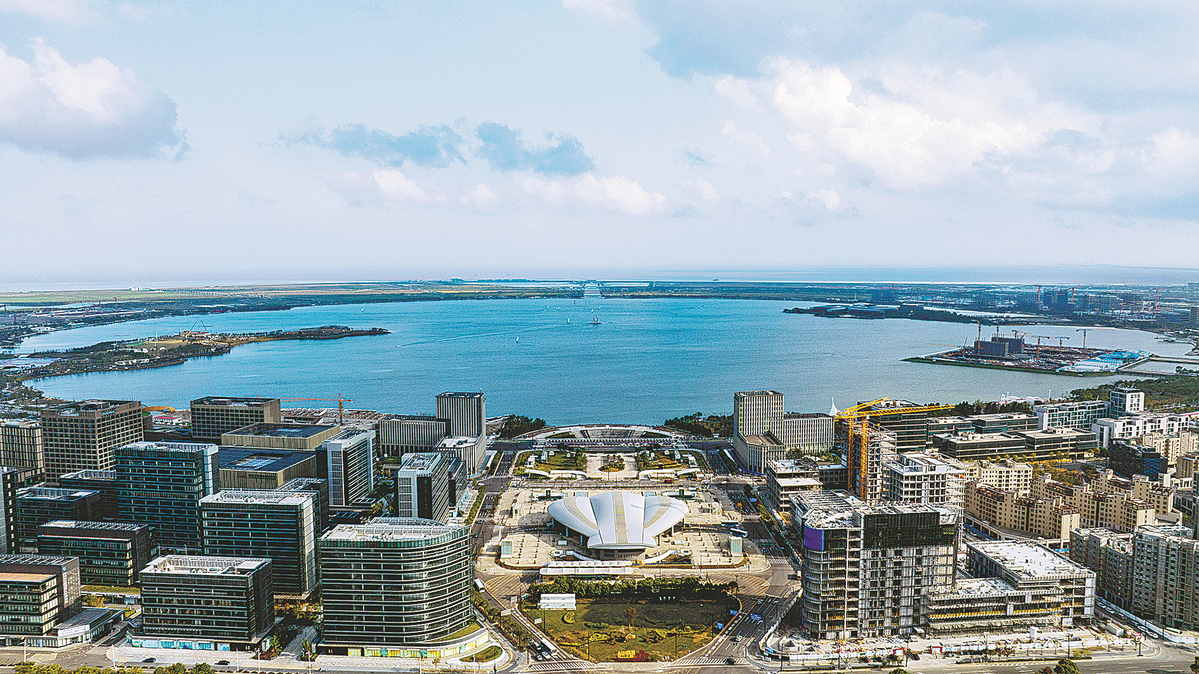Shanghai FTZ eyes alignment with global rules


China (Shanghai) Pilot Free Trade Zone, which is set to celebrate its 10th anniversary on Sept 29, should make greater attempts to help China better align with high-level international economic and trade rules such as the CPTPP and DEPA, said officials and industry experts, as these are conducive to the country's reform and opening-up as well as high-quality economic growth.
The Comprehensive and Progressive Agreement for Trans-Pacific Partnership (CPTPP) is a free-trade agreement between 11 countries in the Asia-Pacific region, while the Digital Economic Partnership Agreement (DEPA) is a digitally focused trade deal initiated by Singapore, New Zealand and Chile.
More steps will be taken to further facilitate free trade, expand access to foreign investors and facilitate cross-border data flow at the Shanghai FTZ, which will be part of efforts to connect to rules such as those of CPTPP and DEPA, said Ruan Qing, deputy director of the Shanghai Municipal Development and Reform Commission during a news conference on Friday.
For instance, a pilot program that aligns with the rules concerning national treatment and market access of goods stated in the CPTPP will be launched in the Shanghai FTZ for importing remanufactured products, he said.
According to the CPTPP, imported goods for remanufacturing are exempt from duties.
Volvo Construction Equipment (China) will be the first company to perform the remanufacturing business in China, according to Chen Chaoping, the company's head of uptime and parts.
A remanufactured engine is expected to arrive in China in late September. Compared to a new product of the same kind, the remanufactured engine will save costs by 50 percent. It will be of the same or even higher quality than a brand-new product of the same model as more advanced technologies have been applied to the remanufactured version, he said.
According to measures released by the State Council, China's Cabinet, in June, pilot programs for importing remanufactured products will be carried out in the FTZs or free trade ports. Prior to the release of the new policies, used road equipment and engines were defined as old mechanical and electrical equipment and banned from being imported.
China's top leadership said in a meeting on April 28 that qualified Chinese FTZs and free trade ports will get support to make the first moves to align with rules such as those of CPTPP and DEPA.
Shen Weihua, deputy director of the Shanghai Municipal Commission of Commerce, said high-standard institutional opening-up is the major mission for Shanghai FTZ at present. Thus, it is studying the post-border management provisions regarding trade in services, digital trade, intellectual property rights and government procurement stated in the CPTPP and DEPA.
Yang Chao, deputy director of the administrative committee of the Shanghai FTZ, said more institutional measures will come up to further improve the business environment in the Shanghai FTZ by referring to Business Ready, a new methodology that the World Bank updated in May to assess the business climate.
The Shanghai FTZ was officially unveiled 10 years ago and covers more than 240 square kilometers. It has undergone two expansions in 2014 and 2019, with the recent move including the Lin-gang Special Area.
Zhu Zhisong, head of Shanghai FTZ's administrative committee, said the Shanghai FTZ has fulfilled its task as a test field for China's deepened reform and opening-up.
Of the 302 institutional innovative measures first experimented in the 21 FTZs in China and taken forward to the rest of the country, nearly half were first rolled out in the Shanghai FTZ.
The negative list mechanism for foreign investment, which was implemented at the Shanghai FTZ since its inception, is one of the major institutional innovations now used all over China. By the end of 2022, the Shanghai FTZ had attracted $58.6 billion of foreign investment in 10 years, accounting for about 30 percent of the city's total during the same period.




































